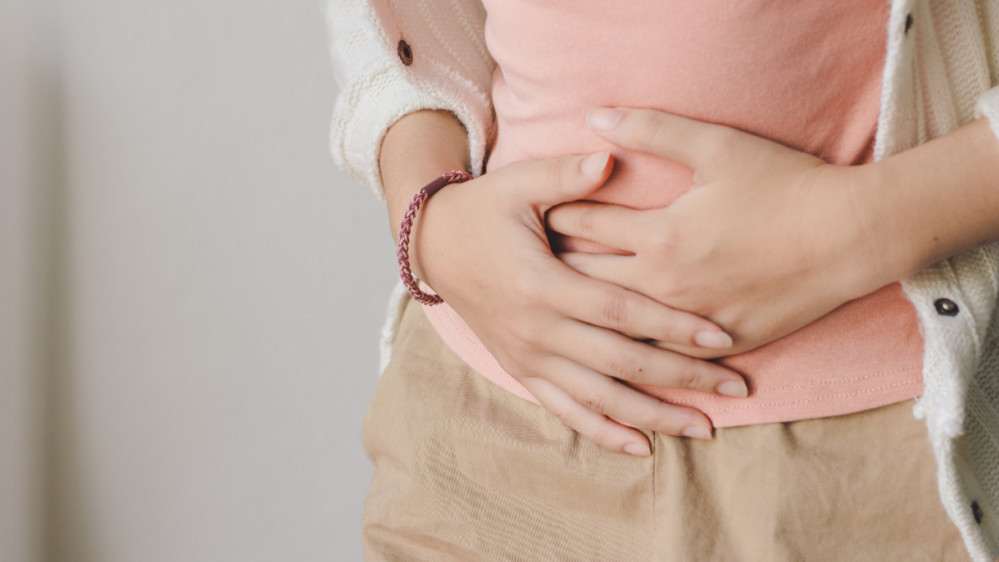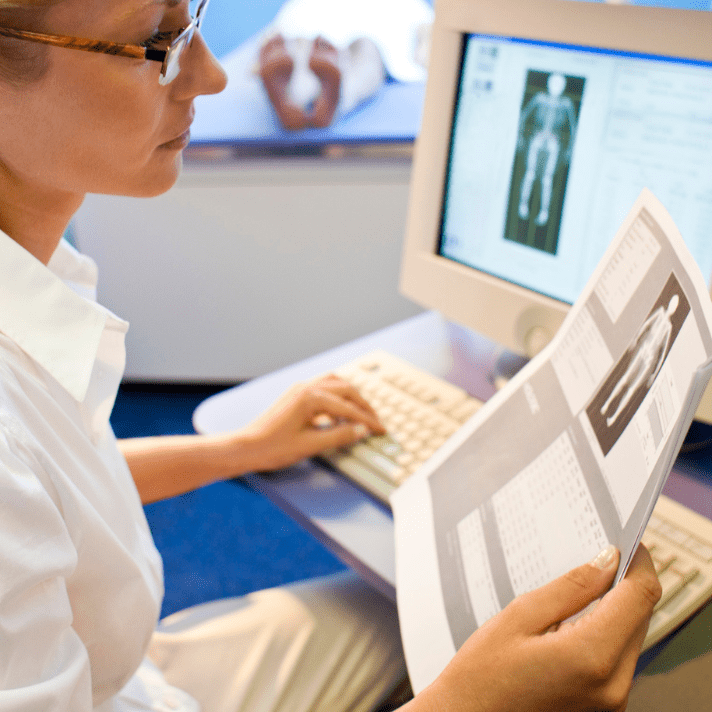
What Causes Bloating in Menopause?
Have you ever felt bloated? Almost every woman I have spoken with shares their experiences of having been there. It’s the famous place in Menopause City where your tummy feels overly full, stretched, and gassy.
Bloating is a common symptom of menopause; it can happen anytime in your life. You may also experience this feeling during other hormonal changes, such as pregnancy or breastfeeding. Bloating occurs when you feel full after eating only a small amount of food or liquids. In menopause, bloating is usually caused by hormonal imbalances that disrupt the body’s ability to absorb nutrients properly and cause water retention and gas build-up in the digestive tract. But there are many other reasons why women experience bloating during menopause: poor digestion; unhealthy eating habits; stress; underlying conditions that can cause bloating, such as ovarian cysts or endometriosis.
Causes of menopausal bloating
Hormonal Imbalance
Hormonal imbalance is the most common cause of bloating in menopausal women. In addition to weight gain and changes in metabolism, hormonal imbalances can cause bloating. Hormonal imbalances are caused by several factors, including stress, pregnancy, and aging.
The following are some other causes of bloating:
- Food allergies or sensitivities
- Gallstones (hard deposits in the gallbladder)
- Liver disease or malfunctioning gallbladder
Water Weight
Water weight is the most common cause of bloating in menopause. Because you’re losing less water through sweating and urinating, it can build up in your body. Your body may also retain more salt because of hormonal changes, which can increase the amount of fluid in your tissues.
If you have water retention caused by exercise or climate conditions (such as hot weather), it’s temporary and should go away after resting for a few hours. However, it’s crucial to drink plenty of fluids when exercising regularly in hot weather because it increases sweating and dehydration.
Poor Digestion
- Poor digestion is another common cause of bloating. The following are some reasons why poor digestion can cause bloating: Food allergies and intolerances
- Lack of digestive enzymes, including lactase (which helps you digest milk products) and pepsin (which breaks down protein). Take a supplement containing these enzymes if you have trouble digesting these foods.
- Low stomach acid levels due to age or other factors like stress or certain medications can also lead to the inability to break down food properly. When this happens, debris from incompletely digested foods builds up in your intestines and leads to gas production and bloating symptoms like abdominal pain and distention. Suppose other factors besides age contribute to low stomach acidity in menopausal women. In that case, supplements like Betaine HCl can help improve digestion by increasing gastric acid production so that food is broken down more efficiently before it enters the small intestine, where the body absorbs most nutrients.
Unhealthy Eating Habits
Improving your eating habits is one of the best things you can do to eliminate bloating. Eat more fruits and vegetables, and cut down on refined carbs. If you’re eating processed foods, stop or try to limit them in your diet! Create a health plan that you can live with, remember balance is the key, and being conscious of what is going in your mouth is imperative to eliminate bloating!
- Avoid sugar: Sugar tends to make our bodies work harder, which means we’re producing more gas than usual. In addition to feeling bloated from the extra gas in your intestines, sugar also harms hormones that regulate digestion and elimination (gastrointestinal transit time).
- Avoid caffeine: Caffeine stimulates your central nervous system (CNS) by causing an increase in adrenaline production. Taking in too much caffeine can result in overstimulation of smooth muscle tissue throughout the body—including those found throughout our digestive tract! If you don’t drink caffeine, that’s great, but if you can’t give up your morning cup of Joe, try reducing the amount you drink to 1 cup per day. It is all about balance and quality of life!
Stress
The most common cause of bloating during menopause is stress, which can take many forms. Stress can come from your job, your family life and relationships, financial concerns or lack thereof, health issues that leave you feeling less than 100%, environmental factors like pollution or weather conditions—even other people!
Stress often causes the body to produce more cortisol and adrenaline—these are known as “fight-or-flight” hormones because they were designed to help our ancestors fight off wild animals or run away from danger when necessary. However, these days, we don’t have to worry about being attacked by wolves at work or chased down by a bear while grocery shopping. However, our bodies still produce these hormones daily as if they were still needed for survival! These extra amounts of adrenaline and cortisol increase blood pressure (which can lead to bloating) and slow digestion, so food doesn’t move through the digestive tract properly, causing constipation and bloating. If this happens regularly over time, those extra pounds could start adding up, making us heavier than usual even though we may not have gained any weight! (I totally understand you sister, I am there right now, can you relate?)
Other causes include:
- Eating salty foods.
- Drinking too much water or soda.
- Having an iron deficiency.
- Taking certain medications that cause fluid retention, such as high-dose birth control pills or diuretics (water pills).
Underlying Conditions That Can Cause Bloating
- Irritable bowel syndrome (IBS)
- Lactose intolerance
- Celiac disease
- Thyroid disease
- Diabetes can lead to high blood sugar levels and insulin resistance, which can increase your risk for diabetes-related complications or even make you more susceptible to developing insulin resistance in the first place. If you have diabetes, discuss testing your blood glucose levels with your doctor. If it looks like they’re going up, chat with them about adjusting your medications accordingly. You should also lower the number of processed foods in your diet and eat more whole foods.
- Inflammatory bowel disease (IBD), including Crohn’s disease and ulcerative colitis—are two types of chronic inflammatory conditions that involve inflammation of the lining of some regions of the digestive tract.
Ways to Relieve and Prevent Bloating Naturally
Getting enough sleep can help you stay hydrated and prevent bloating.
Also, eating a healthy diet will keep your digestive system working correctly so that you don’t have to work overtime to digest your food.
Avoid processed foods as much as possible—they’re often full of additives that can cause bloating and discomfort. If you’re looking for an easy way to cut out processed foods, consider buying organic produce instead of conventional produce.
Exercise regularly to keep your metabolism running at its best; if it’s not working efficiently, your body won’t be able to get rid of excess water weight as quickly as it should be! (This is especially important if you’re overweight.) Drink plenty of water sweety, in addition, will also help flush out any toxins in the body, which could contribute to feeling bloated or “bloated.” Embrace an eating regimen that works best for your needs!
What to Eat When Feeling Bloated and Gassy
While you may have grown accustomed to eating whatever you want, the body’s ability to process food is affected by menopause. Therefore, it’s essential to pay attention to your symptoms and what your body signals are when it comes to bloating.
Eating a balanced diet with plenty of protein, fiber, and good fats can help with bloating. Also, avoiding processed foods, drinking enough water, consuming a quality probiotic supplement, or eating prebiotic foods like asparagus, artichokes, and leeks to relieve gas-inducing bacteria. In addition, mindful practice eating, try herbal teas such as ginger root tea which has been proven effective at reducing bloating in menopausal women!
Common exercises that help relieve symptoms include pelvic floor exercises (kegel exercises) which increase blood flow while working out. The muscles in your pelvis are responsible for assisting waste products through urination/defecation during menopause (they are also very beneficial in strengthening orgasms, among other things). Also, try walking around in circles or figure eights every day for 5 minutes on each leg (standing still); doing squats every day will tone abdominal muscles and back ones, but make sure they’re not so deep they cause pain – if they do stop immediately!
Takeaway
We hope that you’ve learned more about bloating during menopause and how to relieve it by reading this article. We also hope you feel empowered with knowledge of what causes bloating and how to prevent it. Remember, each person is unique and will have different symptoms and needs! If you have any questions or concerns about your health or how your body feels during menopause, talk to your doctor immediately so they can help guide you towards some solutions.
I would love to hear your thoughts, so feel free to add your comments below. Let me know if you would like any recommendations, I am here to help you sister!
Sisters support sisters, so let’s support each other! Use the share buttons in this article for your social media accounts so more women can get help and feel great! XOXO Mary


